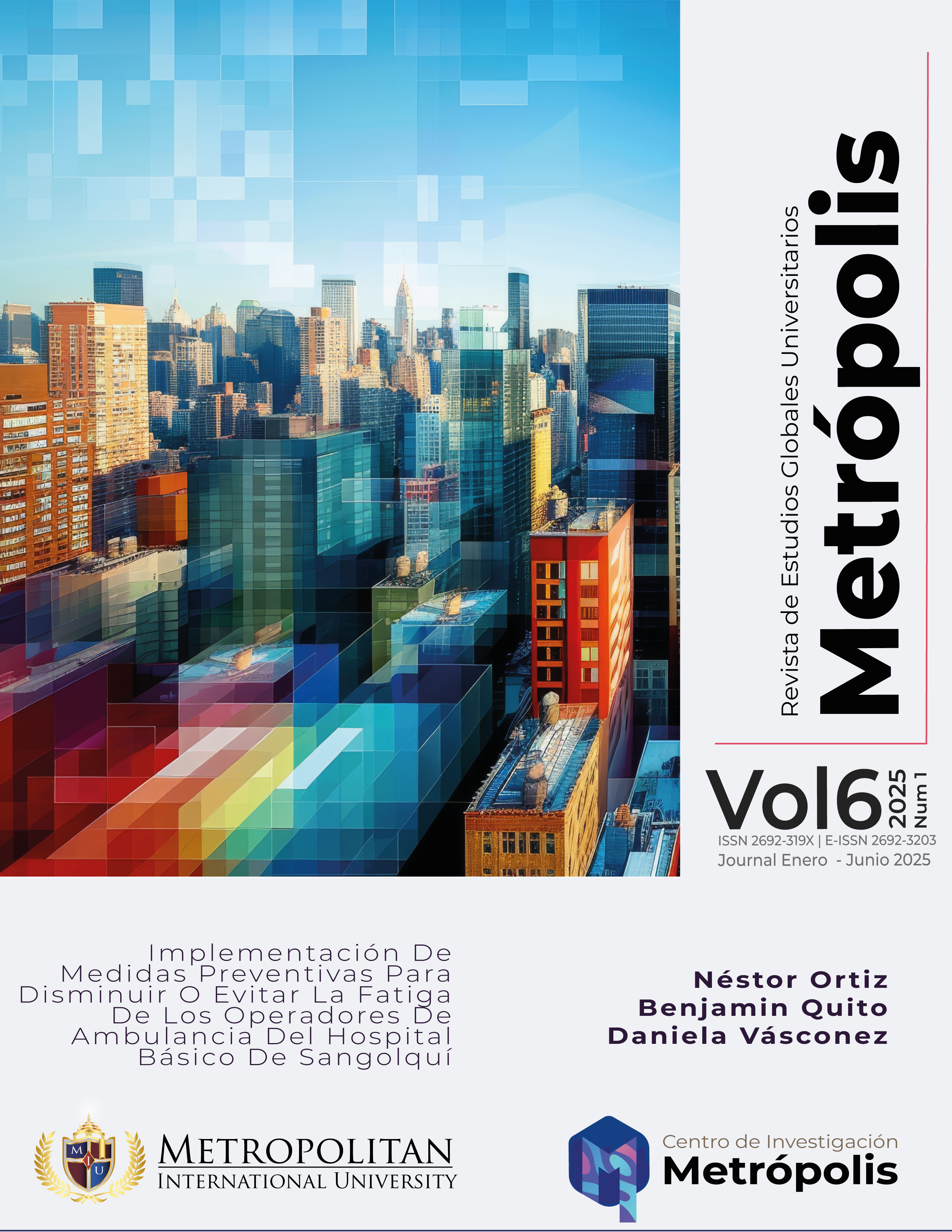Implementación De Medidas Preventivas Para Disminuir O Evitar La Fatiga De Los Operadores De Ambulancia Del Hospital Básico De Sangolquí
Keywords:
fatigue, ambulance, ambulance operator, emergency, fatigueAbstract
This study analyzes work-related fatigue in ambulance operators at the Hospital Básico de Sangolquí (HBS), a second-level public institution located in the province of Pichincha, Ecuador. The research was developed under a mixed approach, combining surveys applied to the nine hospital operators with a literature review of five recent studies on stress, burnout and fatigue in prehospital care contexts in the country. The results show that 66.7% of the respondents experience extreme fatigue most of the time during their workday, and more than 55% report a frequent decrease in concentration. Likewise, 88.9% of the respondents consider their work to be essentially demanding, and more than half of them sleep less than six hours before or after their shifts. Although 88.9% of the participants have rest areas, these do not seem to be sufficient to ensure adequate physical, mental and emotional recovery. In addition, all the operators stated that they did not receive institutional support in physical and mental health or talks on self-care. The literature review corroborates these findings, showing that fatigue in prehospital personnel is related to organizational factors such as rotating shifts, long working hours, thermal stress and emotional exhaustion. Most studies highlight the high prevalence of burnout syndrome and compassion fatigue in these work contexts. It is concluded that it is urgent to implement organizational measures to prevent work fatigue, such as shift regulation, mental health programs, active breaks and emotional self-care workshops.

Downloads
Published
How to Cite
Issue
Section
License

This work is licensed under a Creative Commons Attribution-NonCommercial-ShareAlike 4.0 International License.



